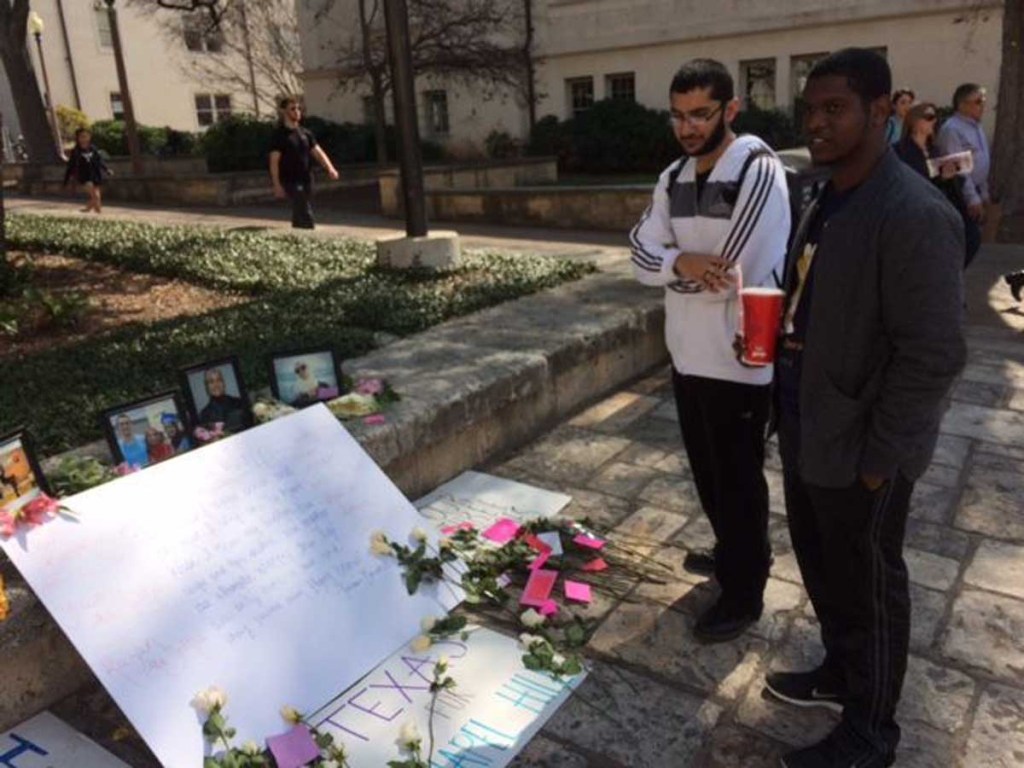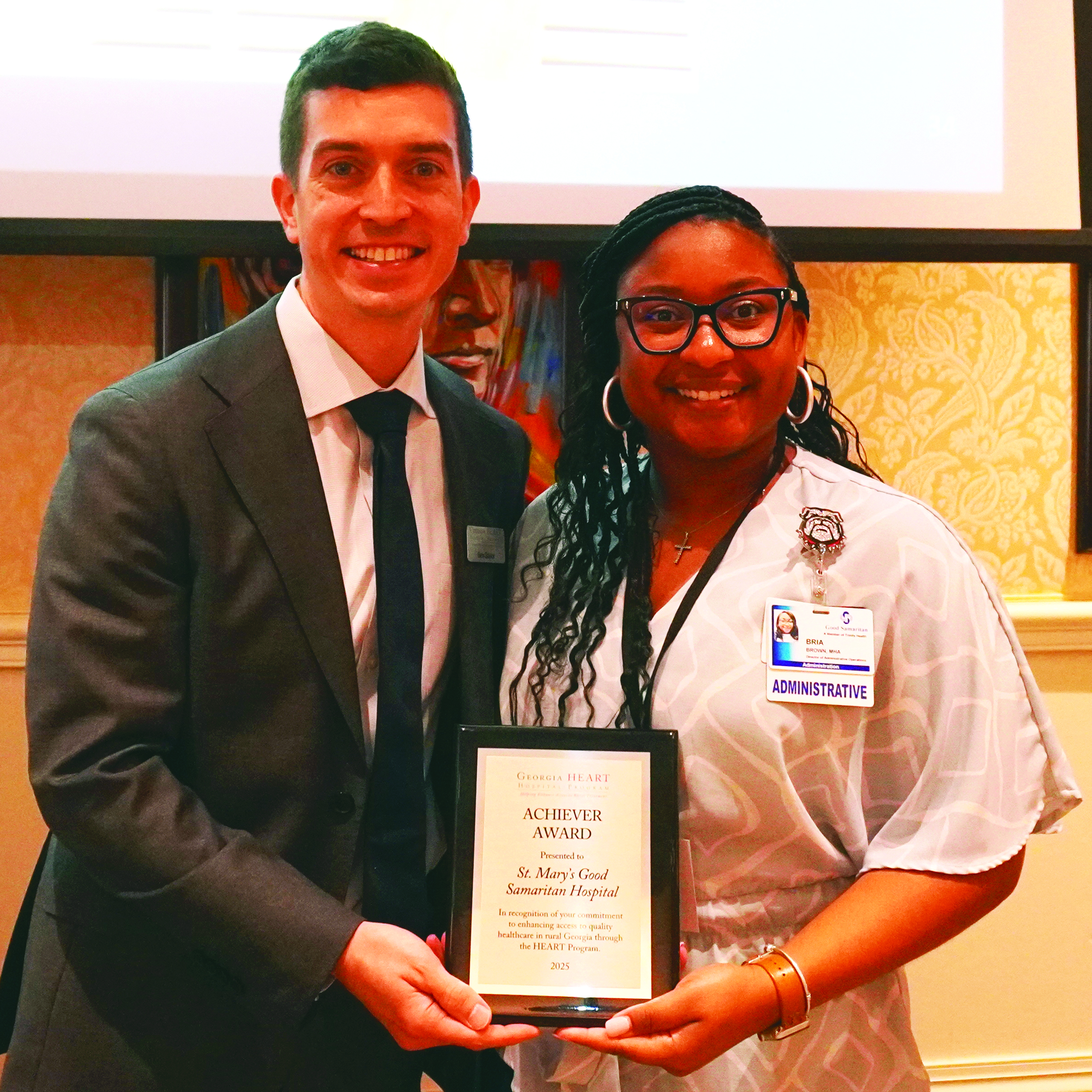Texas campus carry gets chilly reception from UT students
Published 3:30 pm Saturday, February 14, 2015

- Usama Malik, left, and Omar Salim, undergraduates at the University of Texas at Austin, visit a memorial for three slain North Carolina college students on Friday. Malik and Salim say they oppose a bill authorizing students to carry concealed handguns on campus. Malik recalled that a mass shooting at UT in 1966. “If you have it at home, keep it there,” he said, referring to guns. Students lead stressful lives, he said. “What students need is counseling.”
AUSTIN – Beneath the tower at the University of Texas where a student poured down fatal fire on 17 people in 1966, there seemed little support this week for a proposal aimed at preventing another such mass murder.
A legislative committee voted Thursday to allow license holders to carry concealed handguns on college campuses, but Travis Helms, 31, wasn’t buying the argument that more guns on campus are good.
“As a pacifist, I would have to offer some disapprobation,” said Helms, a Houston native and graduate theology student at the University of Cambridge in England, who was waiting for his girlfriend to finish a job interview.
“I think carrying handguns creates more problems than it solves,” he said.
Supporters say allowing campus carry is a defensive measure against gunmen who seek to inflict mass casualties.
State Sen. Brian Birdwell, the Granbury Republican who authored the bill, has said noted that handguns would still be prohibited from pre-schools, elementary and high schools, as well as hospitals that happen to be on college campuses.
The chancellor of the University of Texas System, the state’s largest higher-education entity, has registered his opposition.
William Powers, president of the University of Texas at Austin, declined to discuss the bill. But Gary Susswein, UT’s media relations director, said Powers, too, “has repeatedly expressed his opposition to concealed carry on campus.”
On this campus of approximately 50,000 students, the memory of Charles Whitman’s shooting rampage is apparently evergreen. Even 49 years after the fact, undergraduates including Omar Salim can offer facts about the day.
Yet the fact that an armed civilian climbed the stairs of the tower with police to help end the killing didn’t persuade Salim that students should shoot their way out of trouble.
He and Usama Malik, a senior government major from Round Rock, stood next to a flower-strewn memorial to three students who were fatally shot a mile and a half from a North Carolina university campus earlier this week.
“This is an example of why it’s absolutely the wrong idea,” said Salim, 21, an architecture student from Dallas. “We don’t need people walking around with their own guns.”
Malik said students live pressure-filled lives, often self-medicate and are not yet mature.
“A lot of us are away from home. Emotions are high,” Malik said. “It’s a really tumultuous environment.”
David Lessenberry, 45, a U.S. Navy retiree who is studying international relations and global studies, said he also opposes campus carry.
“I think it could create an environment that’s probably unnecessary in an academic setting,” said Lessenberry, who worked in the defense attache’s office in Paris at one point during his naval career.
The question of who might be shooting whom came up a frequently in discussions at the Capitol on Thursday.
Sen. Judith Zaffirini, D-Laredo, was a student at the university in 1966,and told colleagues how confused she was when civilians began returning fire at Whitman.
Austin’s police chief testified about how hard it can be to tell the good guys from the bad when multiple shooters are involved.
Victoria Martinez, a UT sophomore from Dallas, echoed some of those thoughts.
“It’s kind of like, you could be mistaken for the shooter,” she said.
Visting the UT campus while on a business trip to Austin, Keith Johnson, an attorney from Madison, Wis., suggested looking beyond the campus-carry bill itself for a solution.
“I think the real question goes back to access to weaponry,” Johnson said, standing on the south mall near the tower. “I think the public policy is focused in the wrong place.
“I think it should be focused on mental-health care and screening,” he said. “To me, that’s the issue. Whether you can carry has become a distraction.”





